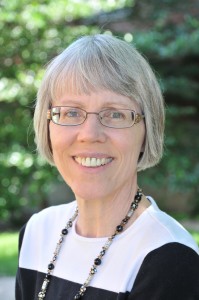By Barb Arland-Fye
Allan Ross is a master at creating events to stimulate dialogue between Jews and Christians, such as a conversation last Sunday between a priest and a rabbi following the showing of the 2013 movie “The Jewish Cardinal.”

Ross, executive director of the Jewish Federation of the Quad Cities, arranged for a viewing of the movie and discussion afterward at St. Ambrose University, Davenport. The university, Jewish Federation and Diocese of Davenport co-sponsored the event. In the audience were friends and colleagues Father Joe DeFrancisco, a St. Ambrose University theologian, and Rabbi Henry Karp of Temple Emanuel, Davenport. A few years ago, the two religious leaders took a group of students from St. Ambrose on a study abroad to Holocaust sites. They’d also participated in a panel discussion of the controversial Mel Gibson film “The Passion of the Christ.”
Allan encouraged me to preview “The Jewish Cardinal,” a truly incredible story. Born in 1926 to Polish-Jewish parents who settled in Paris, Jean-Marie (Aaron) Lustiger at age 13 converted to Catholicism against his parents’ wishes. His mother was deported to Auschwitz when he was 16 and she died there the next year. In 1954, Lustiger was ordained a Roman Catholic priest, led a thriving parish and in 1981 was elevated to archbishop by Pope John Paul II. That decision sparked controversy in Catholic and Jewish sectors. Through it all, Cardinal Lustiger considered himself both Jewish and Catholic. Upon his elevation to archbishop of Orleans, he wrote: “I was born Jewish, and so I remain, even if that is unacceptable for many. For me, the vocation of Israel is bringing light to the goyim. That is my hope, and I believe that Christianity is the means of achieving it” (“The Jewish Cardinal”).
One of the pivotal moments in the movie occurs during a tempestuous argument between Pope John Paul II and Cardinal Lustiger over a Carmelite convent established against Jewish protests on the grounds of Auschwitz. The cardinal literally spits out his words at the pope, deeply aggrieved at this insult to the memory of his own mother and all the Jews who died there.
The movie effectively conveys the strong bond that existed between the cardinal and the pope, which makes the argument scene especially poignant. Several people remarked about the uncanny portrait of the pope in this film. It’s worth watching for that reason alone!
Listening to a dialogue between Fr. DeFrancisco and Rabbi Karp on the Catholic-Jewish perspective never disappoints, and the one following “The Jewish Cardinal” was worth the $6 admission price. (The money goes toward St. Ambrose University’s campus ministry service trips.)
Fr. DeFrancisco spent time as a seminarian in Poland and later studied at the Sorbonne in Paris during the time of the convent controversy. He had attended events at which Cardinal Lustiger spoke. Fr. DeFrancisco said the convent controversy was not quite as big an issue as the movie depicted it to be. He said Pope John Paul II’s first priority was democratization of his homeland, Poland, and the cessation of communism. The pope also had to contend with both ultra-conservative and ultra-liberal Catholics in Europe.
Fr. DeFrancisco appreciated Cardinal Lustiger’s desire to embrace his Jewish heritage and his Catholic faith. “He tried to be a living embodiment of reconciliation between Christians and Jews.”
Rabbi Karp said that for Jews the convent controversy was a very big deal, and not a sidebar. It was an attack on the memory of a people decimated for no other reason than being Jewish.
The rabbi further noted that Cardinal Lustiger’s story “was a real challenge for us as Jews.” Judaism is more than a religion; it’s a civilization, a peoplehood, he said. There’s nothing wrong with being a Catholic, of Jewish descent, Rabbi Karp said. “We can still be friends; we can share and we can work together.”
An audience member defended the cardinal’s dual identities, saying there are many paths to God.
“But you can’t travel two paths at the same time. You choose a road and you travel that road,” Rabbi Karp said.
I am grateful to Allan Ross, for guiding us to press onward in Jewish-Catholic dialogue.








